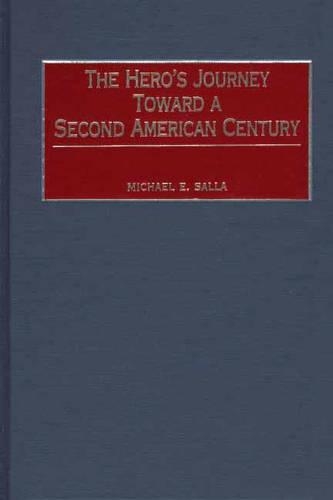
The Hero's Journey Toward a Second American Century
(Hardback)
Publishing Details
The Hero's Journey Toward a Second American Century
By (Author) Michael E. Salla
Bloomsbury Publishing PLC
Praeger Publishers Inc
30th November 2001
United States
Classifications
Tertiary Education
Non Fiction
Regional / International studies
327.73
Physical Properties
Hardback
240
Width 156mm, Height 235mm
482g
Description
U.S. foreign policy has undergone seven cycles of fluctuating political commitment to the moral principles at the heart of U.S. national identity. Under President Clinton, Salla asserts, the U.S. achieved a "grand synthesis" of power and morality, thereby making possible a more interventionist foreign policy in response to current global challenges.
Reviews
Based on a Hegelean conception of the state as a morally evolving, self-conscious political entity, Salla applies Joseph Campbell's theory of the hero's journey to analyze US foreign policy from 1764 to the present. The journey begins prior to US independence when three key national values formed: liberty, representative democracy, and the rule of law. These three principles are at the "heart of American identity as opposed to short-term national interests." Salla traces the development of these values by dividing US diplomatic history into seven "hero's journeys." Each journey is examined by using Joseph Campbell's understanding of the monomyth of hero: call to adventure, great remembering, return to society, and deep forgetting. Salla uses the four steps to understand progressive and isolationist tendencies in US foreign policy. Currently in its seventh hero's journey, the US continues to spread America's values through the promotion of democracy. Salla's work is a good choice for students of US foreign policy, US diplomatic history, and psychoanalysis. Recommended for upper-division undergraduates and above.-CHOICE
"Based on a Hegelean conception of the state as a morally evolving, self-conscious political entity, Salla applies Joseph Campbell's theory of the hero's journey to analyze US foreign policy from 1764 to the present. The journey begins prior to US independence when three key national values formed: liberty, representative democracy, and the rule of law. These three principles are at the "heart of American identity as opposed to short-term national interests." Salla traces the development of these values by dividing US diplomatic history into seven "hero's journeys." Each journey is examined by using Joseph Campbell's understanding of the monomyth of hero: call to adventure, great remembering, return to society, and deep forgetting. Salla uses the four steps to understand progressive and isolationist tendencies in US foreign policy. Currently in its seventh hero's journey, the US continues to spread America's values through the promotion of democracy. Salla's work is a good choice for students of US foreign policy, US diplomatic history, and psychoanalysis. Recommended for upper-division undergraduates and above."-CHOICE
Author Bio
MICHAEL E. SALLA is an Assistant Professor in the School of International Service, American University. Previously he was a lecturer at the Australian National University. He has been involved in non-offical peacemaking efforts for ethnic conflicts in East Timor and Kosovo since 1995. He is the author of Islamic Radicalism, Muslim Nations and the West and co-editor of Why the Cold War Ended (Greenwood Press, 1995).
